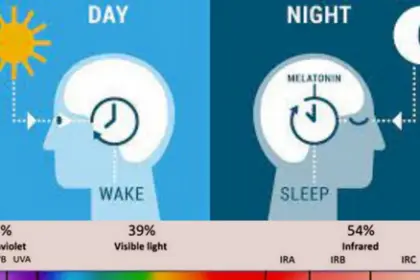If you consider yourself a relatively intelligent individual, you may have noticed that you socialize less compared to your peers. Perhaps you’ve even questioned whether this inclination towards solitude is normal, sane, or socially acceptable.
It is widely recognized that intelligent people tend to experience higher levels of anxiety and are more prone to social anxiety due to their heightened perceptiveness. However, a recent study published in the British Journal of Psychology has shed light on an intriguing phenomenon: highly intelligent individuals actually prefer their own company, and there is a captivating reason behind this preference.
The Study’s Findings
The study delves into the concept of evolutionary psychology and its link to life satisfaction. Researchers surveyed a diverse group of adults between the ages of 18 and 28 and discovered a significant connection between frequent social interaction and reduced levels of happiness in individuals with above-average intelligence.
Surprisingly, those living in densely populated areas reported lower levels of happiness, and the same held true for individuals engaged in more frequent socialization with friends.
The Savannah Theory
To understand the reasons behind this preference for solitude among intelligent individuals, the study proposes the “savannah theory.” According to this theory, our evolutionary predispositions towards happiness remain similar to those that prevailed during the dawn of civilization.
Smarter individuals are believed to be more adept at adapting to the challenges of modern life and are more inclined to break away from the group to pursue lives that are personally fulfilling.
In essence, intelligent people do not rely on the need for tribal belonging to find purpose in their lives. They possess a greater capacity to forge their own paths rather than conforming to societal norms.
The Adaptive Nature of Intelligence
In the past, our hunter-gatherer ancestors lived in smaller, tightly-knit communities of approximately 150 individuals. Social interaction played a vital role in survival during those times.
The ability to adapt to the group and follow instincts was considered a mark of superiority. However, in today’s context, superior intelligence lies in the capability to shape one’s own future and find fulfillment outside the confines of social conformity.
Furthermore, intelligent individuals often possess a heightened level of awareness and sensitivity to their environment. They can perceive subtleties and complexities that others may overlook.
As a result, they may find it challenging to engage in shallow or superficial interactions that are common in large social settings. Intelligent individuals crave depth, meaning, and intellectual stimulation in their relationships, and these qualities are more readily found in one-on-one or small-group interactions.
The Allure of Small Communities
Supporting the notion of a preference for solitude, studies have shown that self-reported happiness tends to be higher in smaller towns compared to larger cities, which has been coined the “urban-rural happiness gradient.”
This phenomenon can be attributed to several factors, but the primary reason is the thriving nature of intimate communities and the genuine connections they foster. In small towns, a sense of belonging and community prevails.
Walking to the local deli in the morning entails exchanging greetings with familiar faces rather than feeling lost in the anonymity of a bustling city. In these smaller settings, personal identity and meaningful interactions take precedence over material achievement or superficial appearances.
Intelligent individuals often bypass the need for external validation and choose to pursue their own goals and passions.
Thriving in Genuine Relationships
Ultimately, intelligence and happiness are found in select, close-knit, and authentic relationships. While some individuals find contentment in larger social circles, intelligent individuals tend to thrive when they can cultivate deeper connections with a few individuals who truly understand them.
Genuine relationships offer a sense of acceptance, understanding, and shared values that contribute to overall life satisfaction.
Intelligent individuals often seek out intellectual companionship and value conversations that challenge their thinking and stimulate their minds. They may feel a sense of isolation or dissatisfaction in large social gatherings where conversations revolve around trivial matters or lack intellectual depth.
By opting for more intimate connections, intelligent individuals can engage in meaningful discussions, exchange ideas, and pursue shared interests.
Conclusion
The study’s findings shed light on the intriguing correlation between intelligence and a preference for solitude. Highly intelligent individuals often navigate life differently, seeking personal fulfillment outside the boundaries of conventional socialization.
The “savannah theory” suggests that adaptability and the pursuit of individual paths contribute to their happiness. While small communities foster genuine connections and a sense of belonging, intelligent individuals prioritize the quality of relationships over quantity.
By understanding and embracing these characteristics, we can appreciate the unique way intelligence shapes an individual’s social preferences and ultimately contributes to their well-being.





